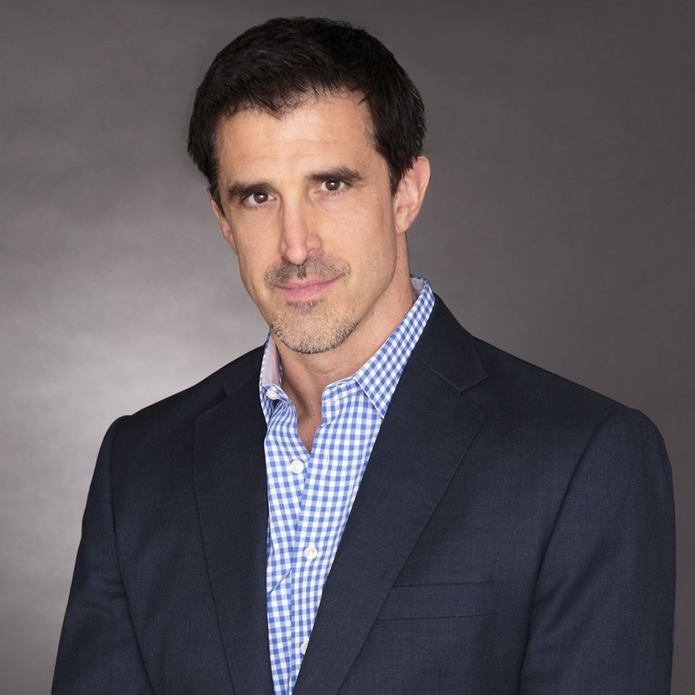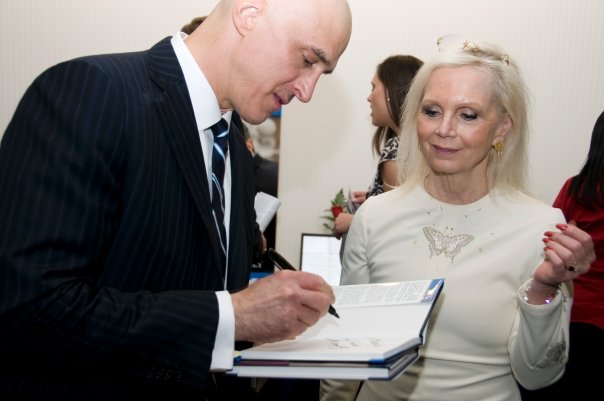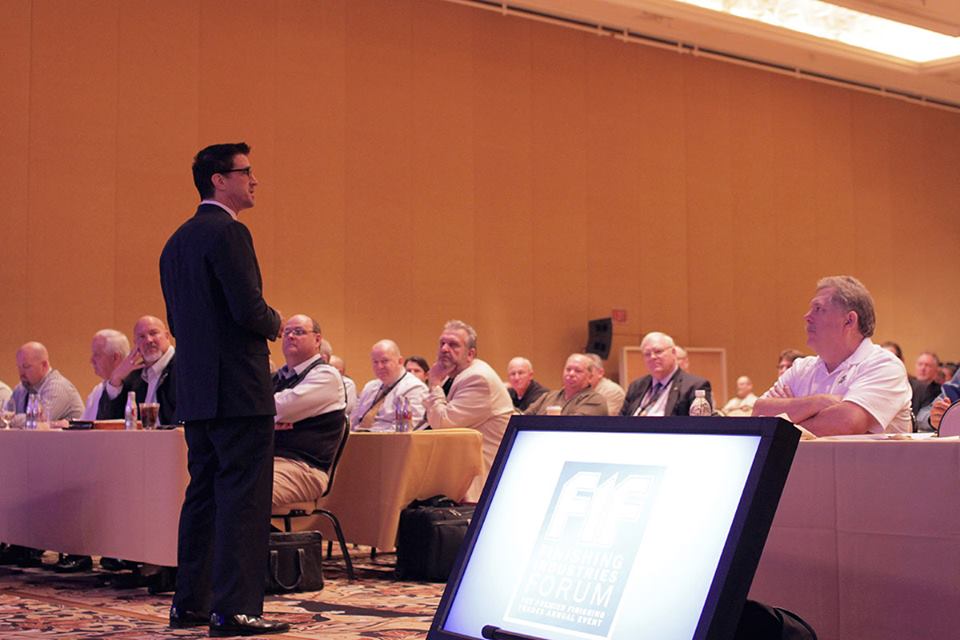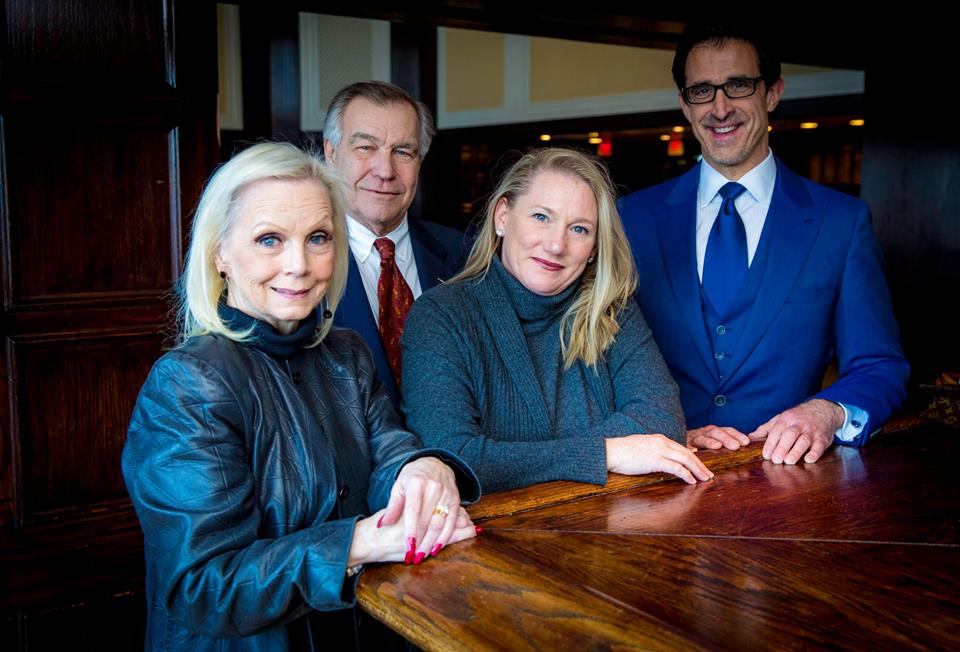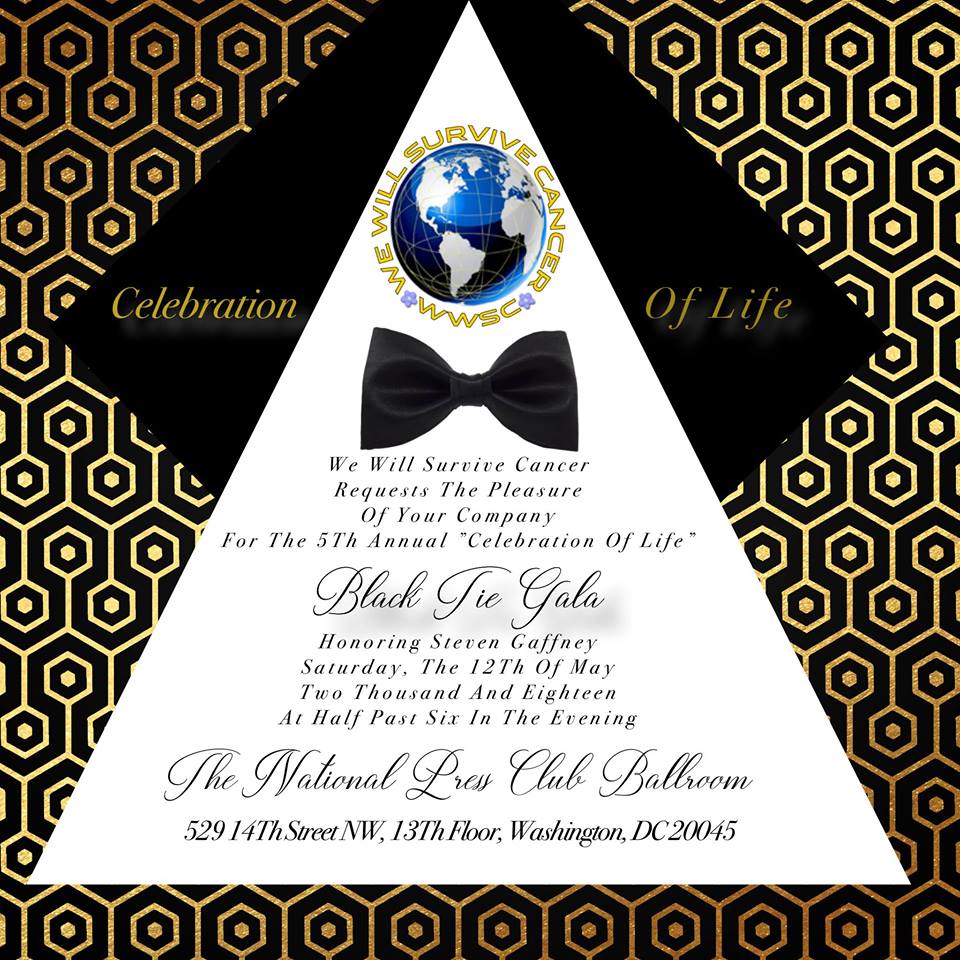Steven Gaffney Part I

By Rodney Wayne Branche
Mr. Gaffney will be honored at We Will Survive Cancer's 2018 Celebration of Life event at the National Press Building on Saturday, May 12 at 6:15pm.
|
Copa: Where are you from Steven?
Steven: I'm from Bethesda, Maryland. |
Copa: Which schools have you attended?
Steven: I attended James Madison University. |
|
Copa: What areas did you study?
Steven: Communication, Public Administration and Political Science. Copa: Is this where you developed good skills as a leader as the President?
Steven: At that time it was a sort of primitive leadership but you learn more effectively as you move along in life. You learn from the school of 'hard knocks' and for most people that's how it really is. |
Copa: Would you consider yourself to be a good communicator because your earlier experiences in college?
Steven: That's a good question, I think I grew up in college like a lot of people do. I don't know if it's so much of what you learn in the classroom or the life experiences you learn while in college. One of my main experiences was being in a fraternity, it was all about dealing with others and group dynamics, I became the president of my fraternity in my Junior year. |
Copa: Please share a few memorable experiences you had after leaving college.
Steven: Wow! I had a series of jobs after college. I was a DJ in several bars for a couple of months as I landed on my feet. I sold photo-copiers, worked for Carnation Food Company, I tried to start a couple of businesses that were unsuccessful. There was one business that was an agency where I worked with photographers which later turned into working with creative people, and moved on with film commercials and directors. Around this time I started to do seminars for creative people on the business side. So this is how I started with seminars.
Steven: Wow! I had a series of jobs after college. I was a DJ in several bars for a couple of months as I landed on my feet. I sold photo-copiers, worked for Carnation Food Company, I tried to start a couple of businesses that were unsuccessful. There was one business that was an agency where I worked with photographers which later turned into working with creative people, and moved on with film commercials and directors. Around this time I started to do seminars for creative people on the business side. So this is how I started with seminars.
Copa: At this time did you effectively develop you communication skills and focusing on your specific message?
Steven: I learned if you love what you do, ultimately you will become very good at it. What I stumbled on in the profession doing seminars for a photography convention that came into town is I didn't know you could make a living with seminars. Interesting enough, my partner at the time was interested in working with the photography seminars all by herself so I went back to running the business alone pushing extremely hard.
Steven: I learned if you love what you do, ultimately you will become very good at it. What I stumbled on in the profession doing seminars for a photography convention that came into town is I didn't know you could make a living with seminars. Interesting enough, my partner at the time was interested in working with the photography seminars all by herself so I went back to running the business alone pushing extremely hard.
Copa: When did you first develop your seminars with your signature 'style?'
Steven: I did some development courses and began to create my own content, when I first started it was just basic motivation and communication and areas of honesty. I have always been an upfront honest person. Most kids speak the 'truth' only when asked...if that. I would voluntarily tell on myself! Okay, I know it was a little weird, If I damaged anything I would proactively tell my parents. My brother and sister were never this way of course...they were normal. So I have always been a very candid kind of person, I never realized this until I looked back on my life.
What I really ended with focusing on is one of the basic tenets of what I bring to the marketplace is by far the number one problem is not what people say it's what they don't say to each other. The key is to get that unsaid thing said. Yes, tone is important, attitude is important, people hold back from each other. This is where you get the feeling if these individuals would have just told me I could have done something about it wondering If I had just known if that employee had left because they were upset and taken another job.
Steven: I did some development courses and began to create my own content, when I first started it was just basic motivation and communication and areas of honesty. I have always been an upfront honest person. Most kids speak the 'truth' only when asked...if that. I would voluntarily tell on myself! Okay, I know it was a little weird, If I damaged anything I would proactively tell my parents. My brother and sister were never this way of course...they were normal. So I have always been a very candid kind of person, I never realized this until I looked back on my life.
What I really ended with focusing on is one of the basic tenets of what I bring to the marketplace is by far the number one problem is not what people say it's what they don't say to each other. The key is to get that unsaid thing said. Yes, tone is important, attitude is important, people hold back from each other. This is where you get the feeling if these individuals would have just told me I could have done something about it wondering If I had just known if that employee had left because they were upset and taken another job.
|
|
|
Copa: Why is it that many people don't speak the truth in business and social relationships?
Steven: By far the number one reason is fear, fear of retribution, fear of hurting someones feelings or fear that they won't be forgiven. I'm sure you have some people right now in your life trained and conditioned for you to lie to them. You might say, "Hey I don't lie." We all meet people who get very defensive and upset. Also sometimes people don't feel safe. So if we make them feel safe and not judge they will speak the truth. It takes more physiological energy to keep something inside than to let it out. Think about it this way, have you ever had the experience that you wanted to tell somebody the truth and you don't. This is actually very stressful. So if you share the truth without fear of being judged. It's quite a relief for you but you probably won't do it if you feel there will be a backlash. Sometimes it has nothing to do with you or me, maybe it has something to do with some of their life experiences.
If you grew up in a divorced family and there was a lot of conflict in your home you figured that you can get through a lot situations by not being vocal. So when you grew up and became an adult you would most probably have had a hard time speaking up. I'm no saying that all people who grew up in divorced families feel this way but what's fascinating is that our early childhood experiences really do shape the future. This is no excuse for us not to change.
Steven: By far the number one reason is fear, fear of retribution, fear of hurting someones feelings or fear that they won't be forgiven. I'm sure you have some people right now in your life trained and conditioned for you to lie to them. You might say, "Hey I don't lie." We all meet people who get very defensive and upset. Also sometimes people don't feel safe. So if we make them feel safe and not judge they will speak the truth. It takes more physiological energy to keep something inside than to let it out. Think about it this way, have you ever had the experience that you wanted to tell somebody the truth and you don't. This is actually very stressful. So if you share the truth without fear of being judged. It's quite a relief for you but you probably won't do it if you feel there will be a backlash. Sometimes it has nothing to do with you or me, maybe it has something to do with some of their life experiences.
If you grew up in a divorced family and there was a lot of conflict in your home you figured that you can get through a lot situations by not being vocal. So when you grew up and became an adult you would most probably have had a hard time speaking up. I'm no saying that all people who grew up in divorced families feel this way but what's fascinating is that our early childhood experiences really do shape the future. This is no excuse for us not to change.
Copa: In your opinion, have you found if there is a difference in the ability to communicate with men and women?
Steven: Here's my take on this, there's a lot of research on men and women and how they deal with the truth. I just don't like to go down that path, I'm not a good fan of labeling anyone because the problem is when we go down this path it's almost like if we judged people on age and some people would say that age discrimination is bad. Look at how people treat millennials differently, generation X or Baby Boomers and say that they had different experiences while growing up. That may be but you just can't just lump everyone up in one group. I don't think we need to do it so this is what I have started doing. This is the breakthrough in my business, I developed a 9 step formula that everyone should consider. It doesn't matter their age, gender or where they grew up. You just take the problem you have with this person and you just plug it into a formula and it will show you how to approach the issue and get it resolved. Resolution doesn't mean that you get what you want but it does mean that you will get it resolved. I have spoken about this formula and it's the backbone basis of my company. This way we don't have to worry about who lies more or who who has more problems with communication.
Steven: Here's my take on this, there's a lot of research on men and women and how they deal with the truth. I just don't like to go down that path, I'm not a good fan of labeling anyone because the problem is when we go down this path it's almost like if we judged people on age and some people would say that age discrimination is bad. Look at how people treat millennials differently, generation X or Baby Boomers and say that they had different experiences while growing up. That may be but you just can't just lump everyone up in one group. I don't think we need to do it so this is what I have started doing. This is the breakthrough in my business, I developed a 9 step formula that everyone should consider. It doesn't matter their age, gender or where they grew up. You just take the problem you have with this person and you just plug it into a formula and it will show you how to approach the issue and get it resolved. Resolution doesn't mean that you get what you want but it does mean that you will get it resolved. I have spoken about this formula and it's the backbone basis of my company. This way we don't have to worry about who lies more or who who has more problems with communication.
FOR TICKETS:
FOLLOW THIS LINK
Stay tuned Thursday evening for Part II
"Steven's fight with Cancer"
~Copa

